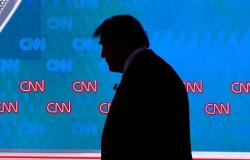
Appearing as a counterpoint to the process of globalization, the theme of “economic patriotism” has seen spectacular promotion since the start of the 21st century. A form of contemporary reinterpretation of the classic concept of protectionism, economic patriotism is today present in almost all of the economic programs of candidates for the European and legislative elections. Concerning the assessment of Emmanuel Macron’s seven years on this question of economic patriotism, Jean-Marc Daniel reminds us that “what is quite striking is that Emmanuel Macron was elected in 2017 saying that he was in favor of free trade, that he had no nostalgia for smoking chimneys or industrial industry. ancient…and that the role of France, the mission it assigned itself, was to insert France into the world market. And he also recalled, which is always the case, that it is the euro zone that generates trade surpluses. And therefore, it would be paradoxical if the zone which is the main beneficiary of international trade becomes protectionist. And then, now, he is more for sovereignty…the Covid pandemic has been there…Moreover, it is difficult to understand what is really the backbone of his approach towards free -exchange. And there he comes up against his European partners, because Germany, each time, is quite clearly in favor of free trade.e”
Since it can be interpreted in multiple ways across the political spectrum, economic patriotism is also subject to debate: economic patriotism can be used to stimulate strategic sectors of the economy or to support the idea of “ national preference”, or even to create strategic autonomy at European level, Leo Charles add “in fact, we must agree on the idea that any economic policy needs a space of sovereignty to be applied. And so this space of sovereignty can be France, it can be the European Union, we can choose this space of sovereignty. But we need a space of sovereignty in which our economic policy applies. And indeed, the current rise of patriotism, it has been said that it is also linked to globalization and the particularly negative effects of neoliberal globalization. There, we are faced with something, parties which tell us that the European Union, which is a liberal, even ordo-liberal, ideological construction, ultimately prevents us and limits us in our room for maneuver, and imposes on us things which can’t run at 27, etc. And so, whatever the party on the left or the right, the idea is to say to ourselves, we must give ourselves room for maneuver, and the ordo-liberal vision of the European Union prevents us from leading the transition. ecological, social transition, or to favor the French men and women if we go to the National Rally“.
For further
The course of history Listen later
Lecture listen 58 min
Sound references





